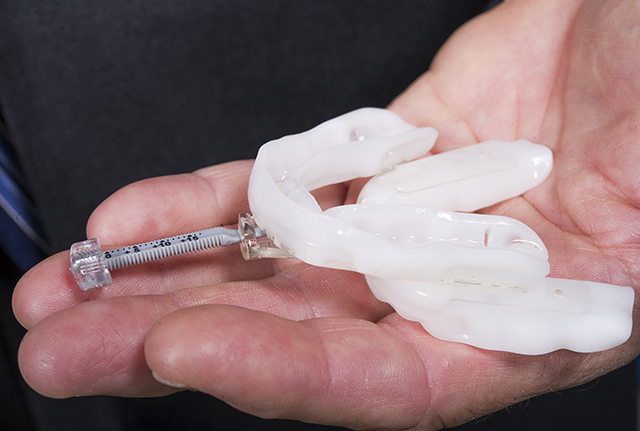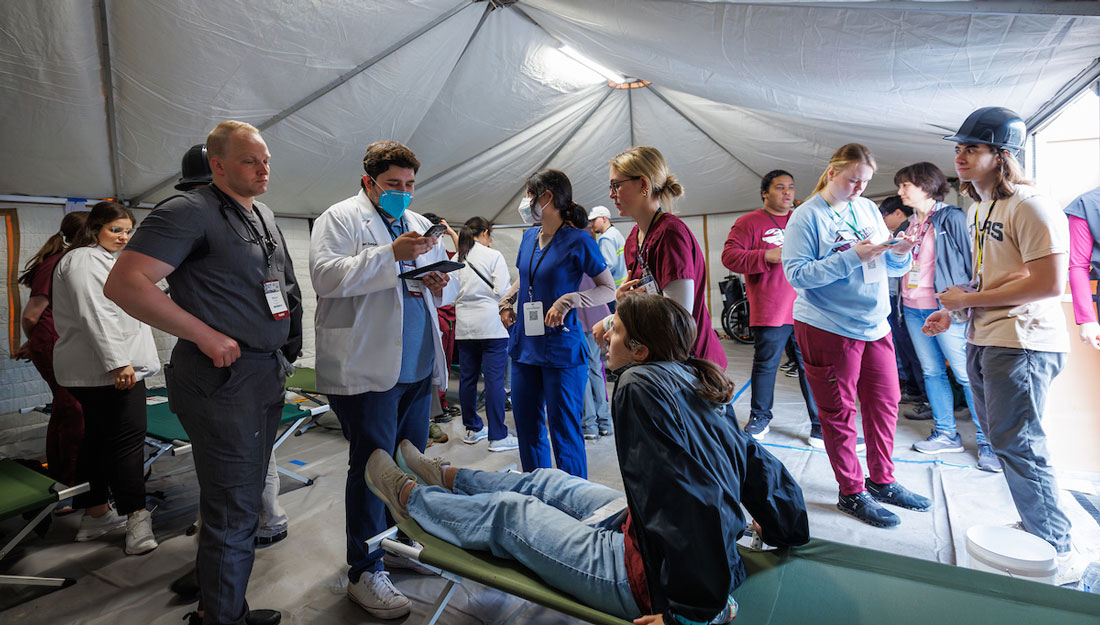Texas dental schools team up to create a standardized course for treatment of sleep-related breathing disorders

On June 11, after more than two years of hearings, proposals and discussions, a new rule regarding how Texas dentists may diagnose and treat sleep-related breathing disorders went into effect.
The Texas State Board of Dental Examiners recently approved the rule, making it a part of Texas Administrative Code. It allows dentists to independently diagnose, treat and monitor any dental condition related to benign snoring or obstructive sleep apnea. With this responsibility comes the mandate for dentists to complete 12 hours of education in sleep-disordered breathing the first year of treating patients for such conditions and three hours in subsequent years.
 To make this process as seamless as possible, alumni and faculty at Texas A&M University Baylor College of Dentistry have teamed up with dentists at the UT Health Science Center dental schools in San Antonio and Houston to create a standardized, statewide course on the discipline.
To make this process as seamless as possible, alumni and faculty at Texas A&M University Baylor College of Dentistry have teamed up with dentists at the UT Health Science Center dental schools in San Antonio and Houston to create a standardized, statewide course on the discipline.
At the helm is Dr. Keith Thornton, who graduated from Texas A&M Baylor College of Dentistry in 1969 and owns SleepWell Solutions, a Dallas dental practice dedicated entirely to sleep-related breathing disorders.
“This course will include everything that is necessary for a dentist to start treating their patients in his or her office,” says Thornton. “It will be comprehensive and developed by Texas dentists who are experts in the field of sleep-disordered breathing plus representatives from each of the Texas dental schools.”
The program will cover the basics of sleep and sleep-disordered breathing through lecture and hands-on instruction. The goal is for dentists to become comfortable with the technical aspects of fitting patients for and fabricating oral appliances, which are designed to protrude the jaw, preventing the tongue and soft tissues of the throat from collapsing into the airway.
Dr. Amerian Sones, director of continuing education at Texas A&M Baylor College of Dentistry, says she anticipates the college will host the first standardized program by fall 2015. An annual two-day course covering snoring and sleep apnea has already been in place at the dental school for several years, but the need for training within this dental niche continues to grow.
“There is a very big interest in treating these problems,” Sones says. “Sleep-related breathing disorders affect such a big percentage of our population, and those who suffer from it deal with a lack of sleep and really can’t function. They can’t work, drive or be productive because they don’t get the rest that they need.
“We in dentistry are jumping on board because this is a problem that in most cases can be managed, prevented, or treated using dental technology, and so we must be a part of diagnosis and treatment planning.”
The program, which may be structured as a symposium, could include the opportunity for interprofessional collaboration with physicians and ear-nose-and-throat specialists.
In his role as president of the Texas State Board of Dental Examiners, Dr. Rudy Ramos has worked on the rule for the past two years.
“I meet with state board examiners across the country. No one really addresses sleep-disordered breathing,” Ramos says. “Texas is the first to embark on a sleep dentistry rule. It will set the bar across the country.
“A lot of dental schools now are going to have to make this a part of their curriculum. This is going to be a big change for dentistry as a whole.”
Media contact: media@tamu.edu


